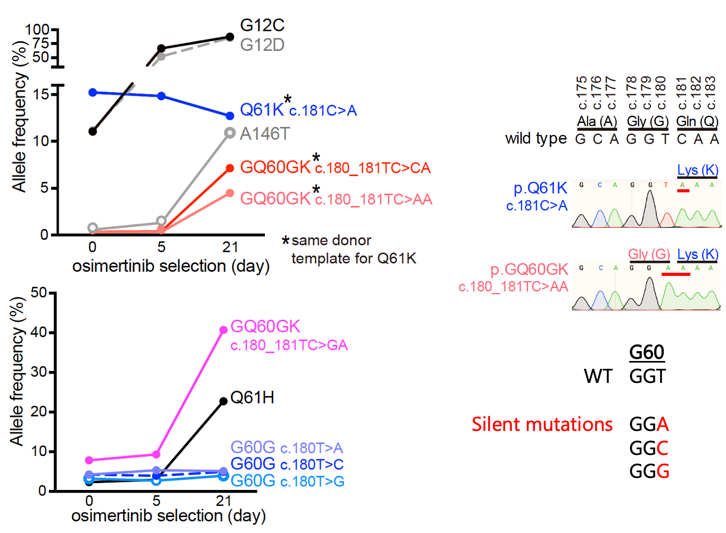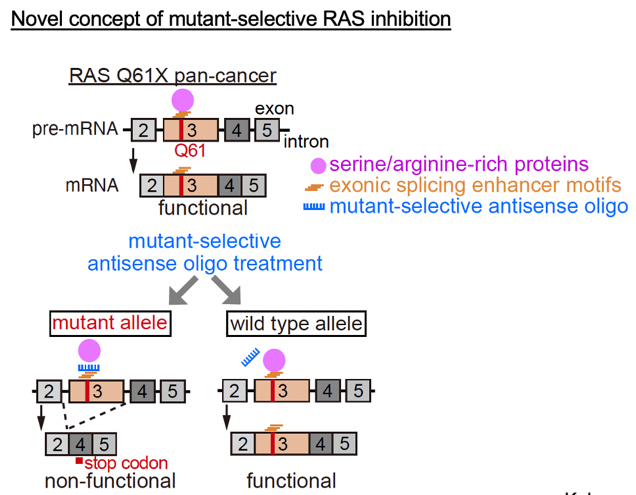Home > Organization > Divisions and Independent Research Units > Division of Molecular Pathology > Research Projects > Molecular and morphological profiling beyond organ characteristics (trans-organ analyses)
Molecular and morphological profiling beyond organ characteristics (trans-organ analyses)
Using EGFR mutant lung cancer cell models, the carcinogenesis mechanism is being investigated from the perspective of drug resistance as a JST-initiated FOREST project. In collaboration with the Division of Genome Analysis Platform Development, we have verified splicing site-creating variants extracted by large-scale data analysis in genome-edited cell models, and demonstrated that antisense oligonucleotides can supress the carcinogenicity caused by splicing abnormalities.
Figure 5 Silent mutations in RAS Q61 cancers and a novel mutant-selective treatment strategy
In addition, we reported that the tumor cell content in cancer gene panel tests is easily overestimated, but that training can make this assessment more uniform (Fig. 6).

Figure 6 Effects of Training on Improving Tumor Cell Content Assessment in Cancer Gene Panel Tests



